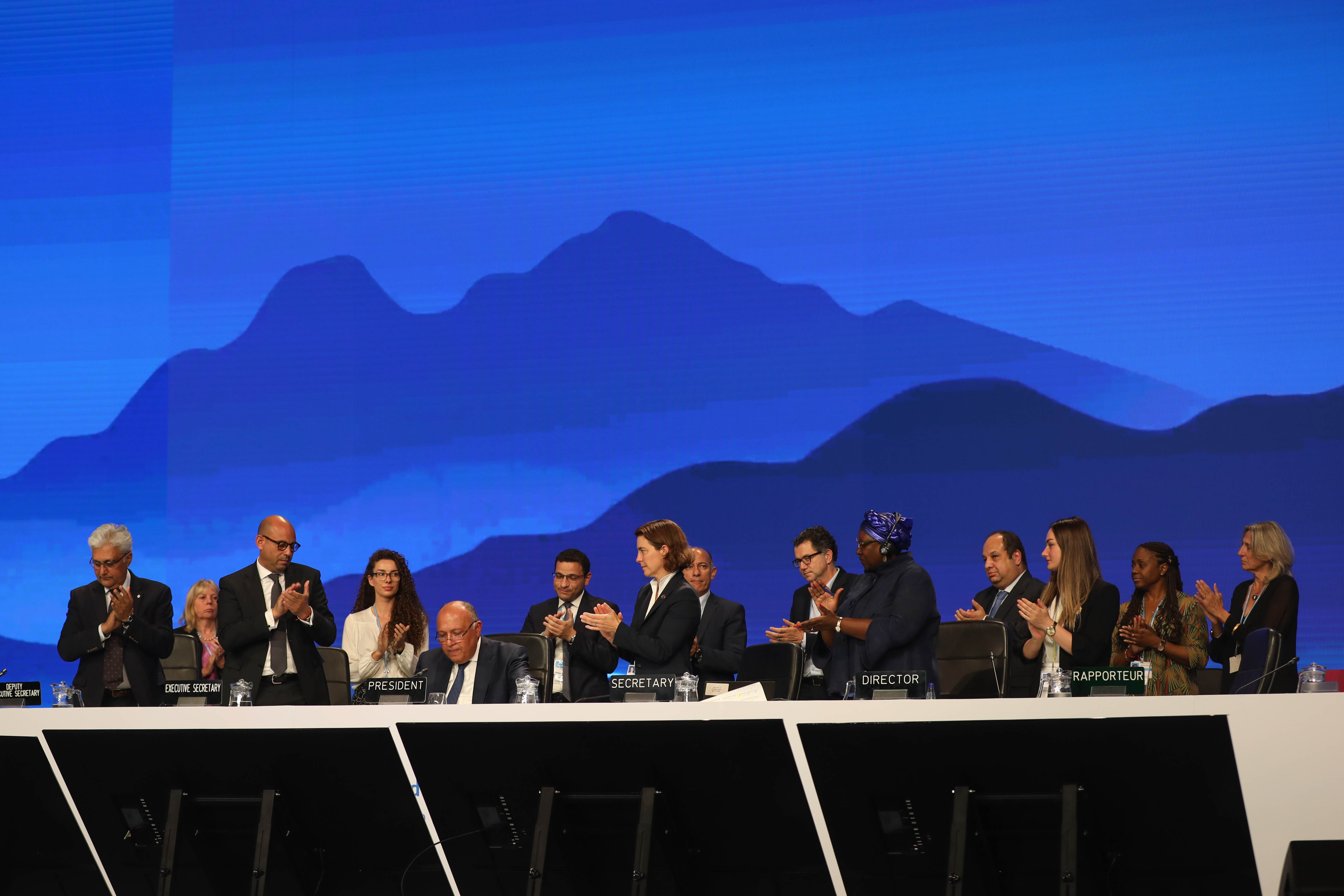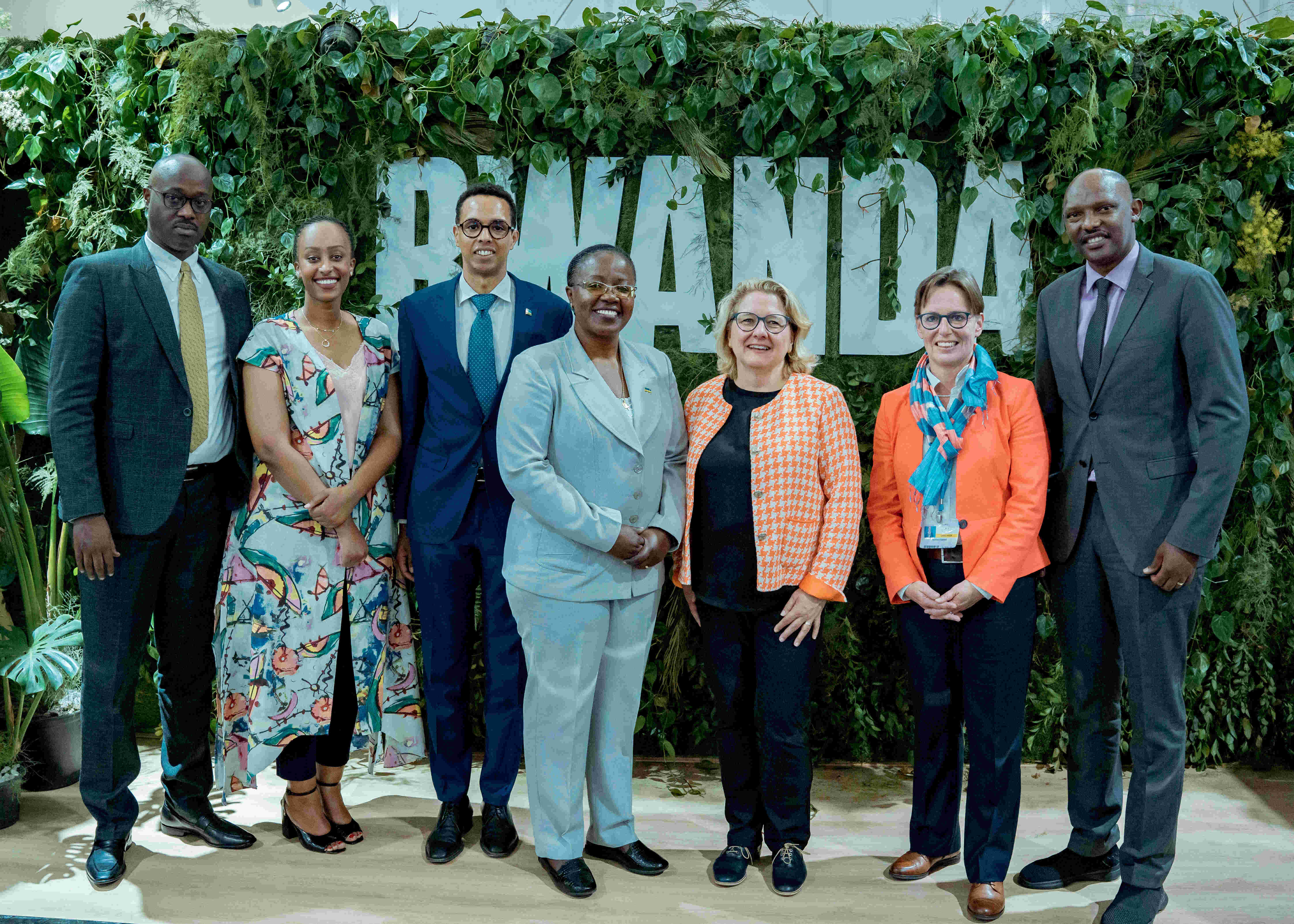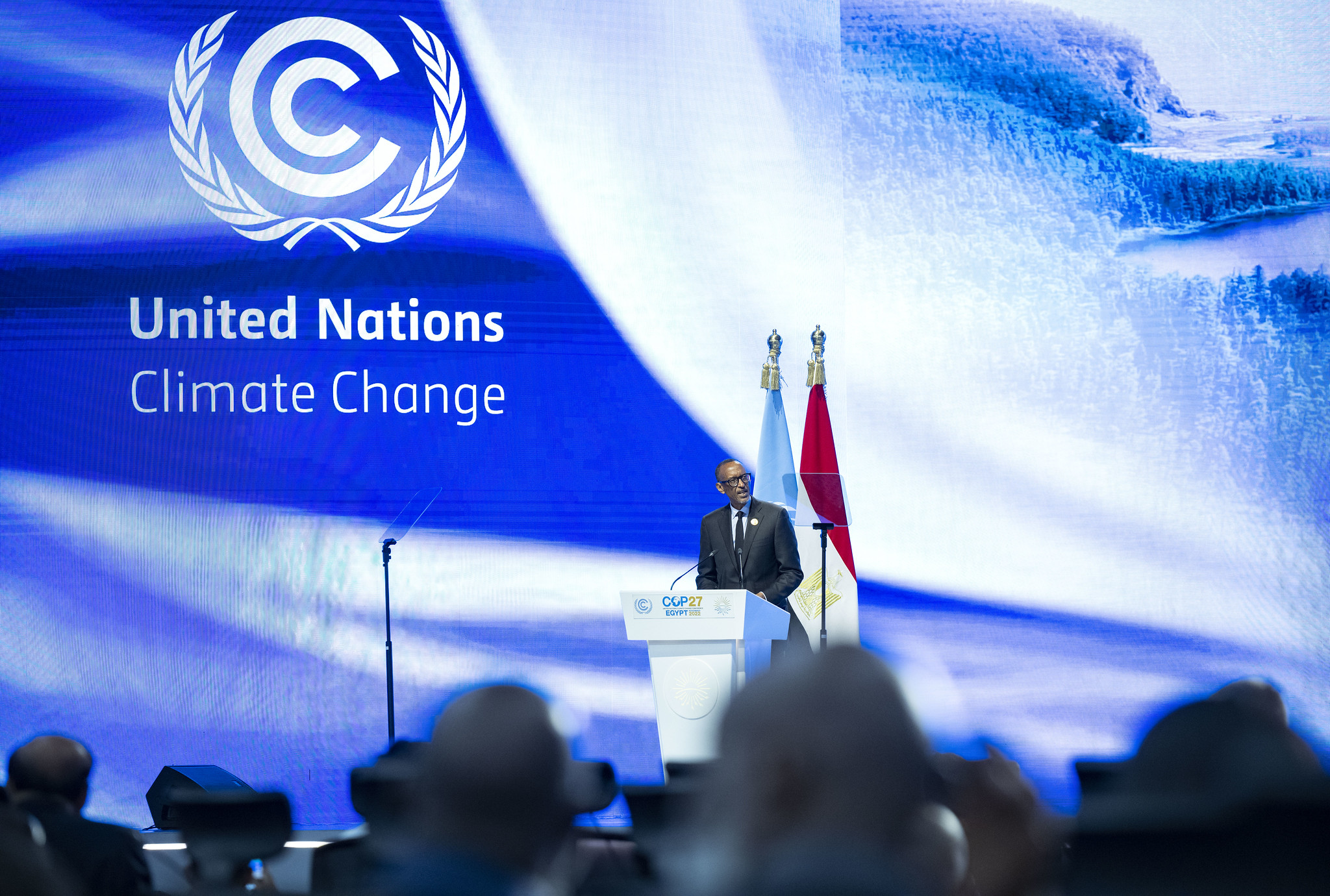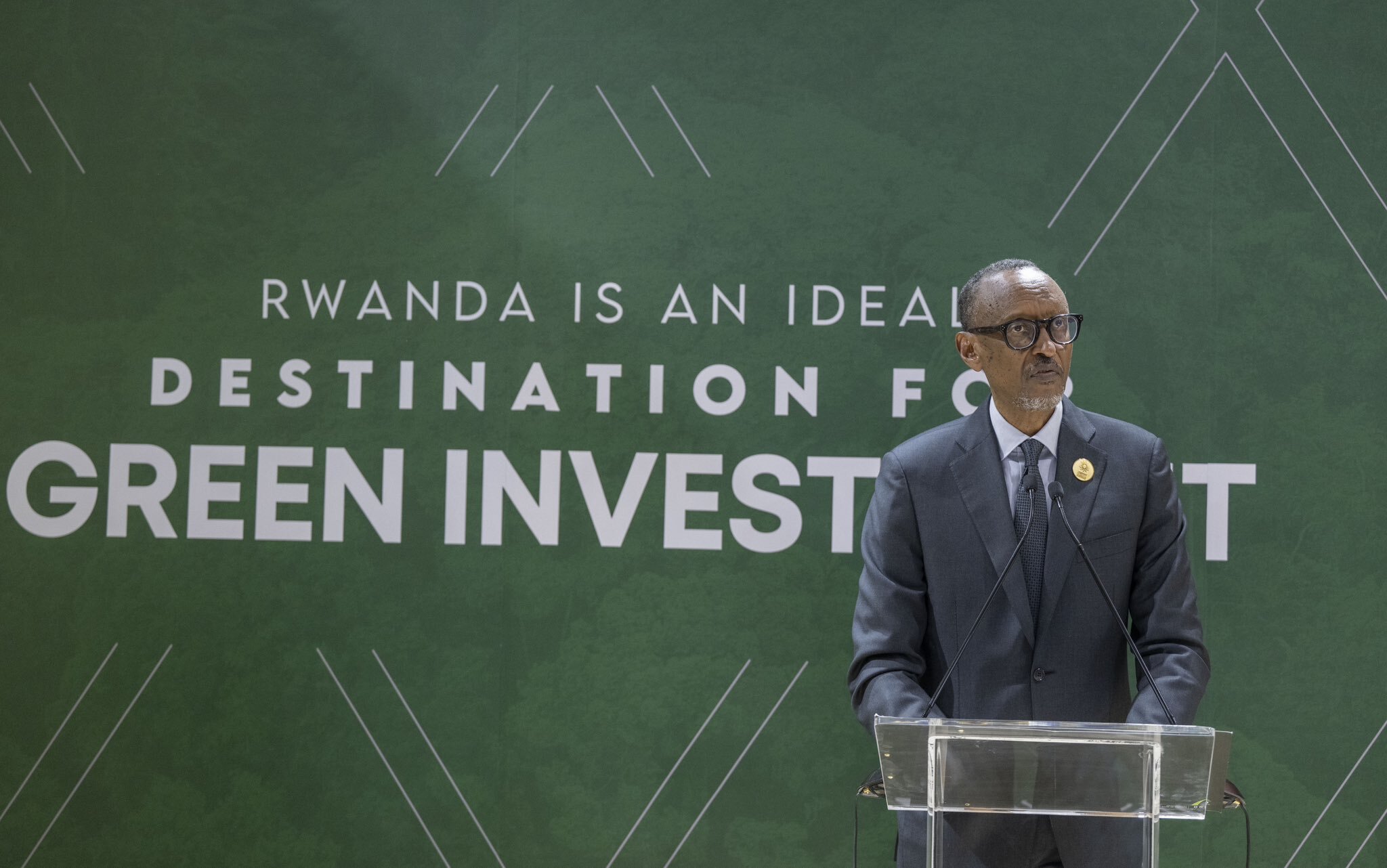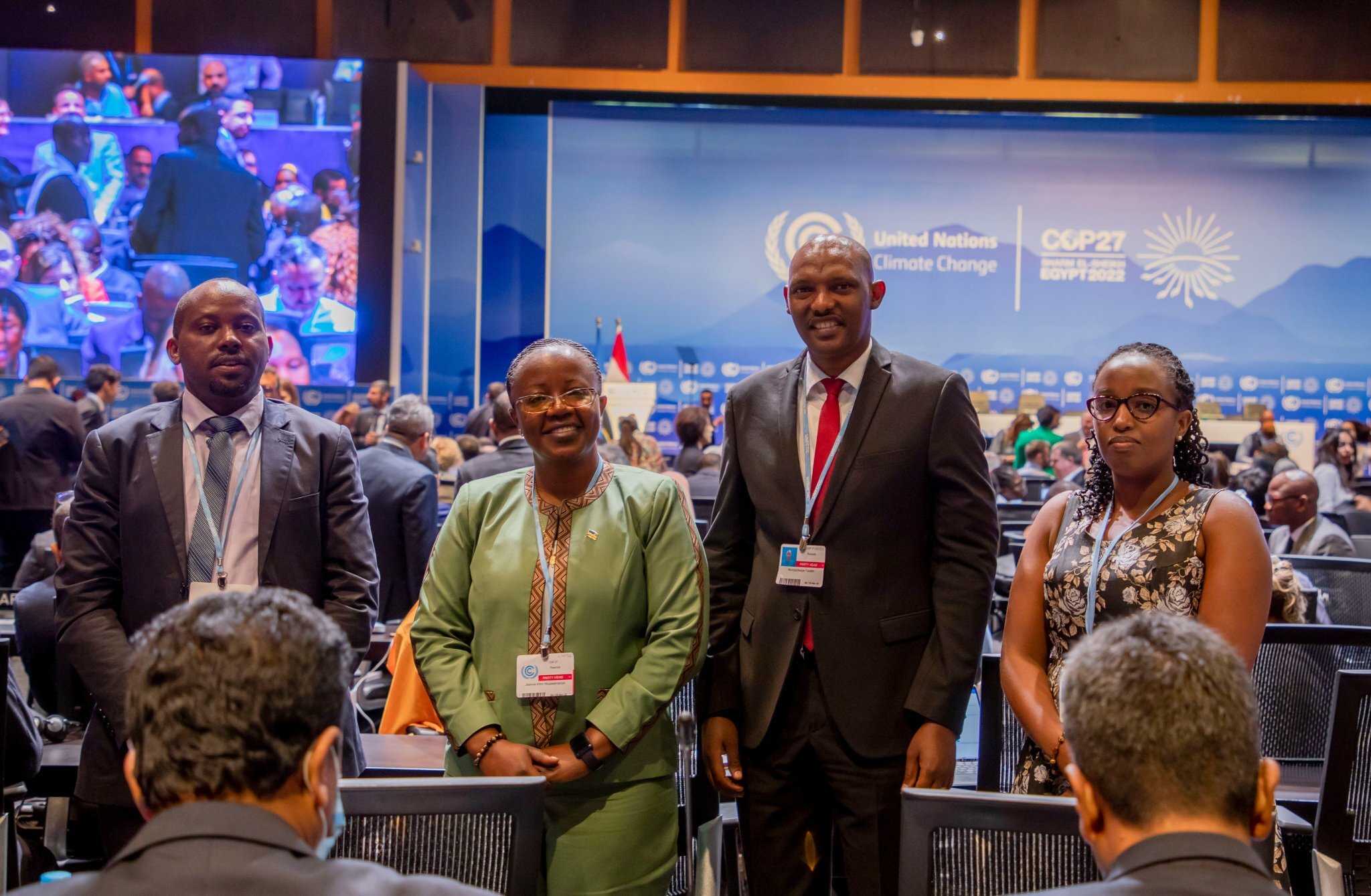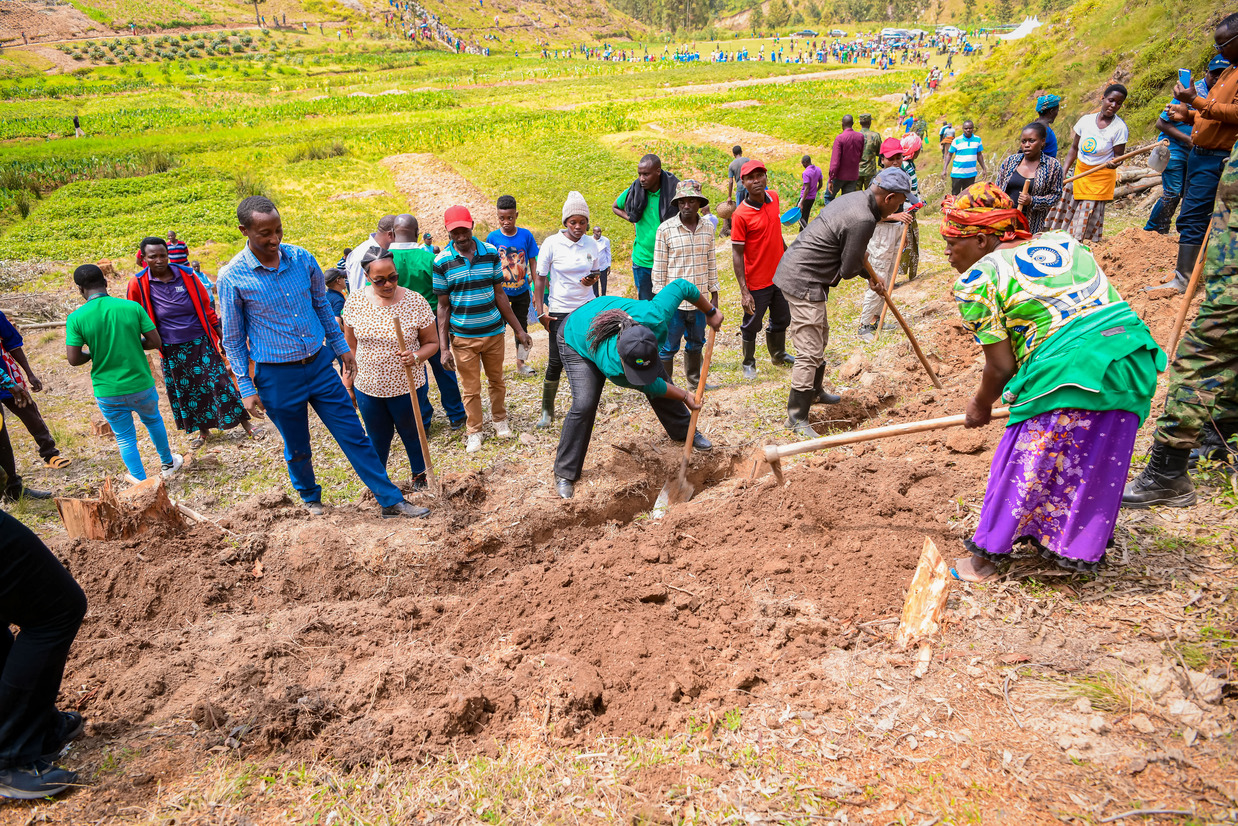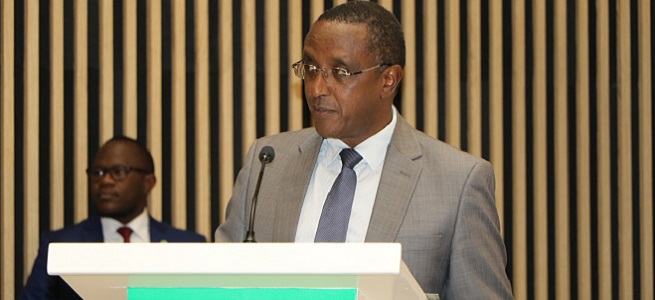
Remarks by Minister of Environment at Launch of National Environment Week
Fellow Ministers,
One UN Resident Coordinator,
Private Sector Federation Chairperson,
Distinguished guests,
Ladies and gentlemen
Mwaramutse!
It is a pleasure to be with you this morning as we officially launch this year’s National Environment Week. I wish to thank you all for joining us, and I look forward to a lively conversation about how we can join hands to beat plastic pollution.
Today’s conference on addressing the challenge of plastic waste is timely.
Around the world, almost 450 million tons of plastic is produced every year. It’s especially troubling that 40 percent of plastic produced is packaging, used just once and then discarded. The scale of the problem can perhaps best be seen in the number of plastic bottles we use: globally, nearly a million plastic beverage bottles are sold every minute.
Of this plastic waste, an estimated 13 million tons enter the world’s oceans each year. By 2050, it is estimated that there will be more plastic than fish in the oceans. Most plastics are made from fossil fuels like crude oil, which contributes to climate change and estimates for the time it takes plastics to break down range from 450 years to never. It’s clear that plastic waste has become an environmental catastrophe we can no longer ignore.
Since Rwanda introduced the law to prohibit the manufacture, importation, use and sale of polythene bags a decade ago, we have seen remarkable progress and we are pleased that other countries, especially our neighbours the region, are following suit.
Today, the challenge we face is no longer plastic bags alone, but all plastics, especially those used once and thrown away. These disposable plastics are known as ‘single use’ plastics.
Single use plastics are damaging our rivers, wetlands, and farmlands. They also pose a risk to our health. Like all rubbish, plastic waste blocks drains and waterways. This increases the chances of flooding and provides the breeding grounds for mosquitoes, raising the risk of malaria and other water borne diseases.
This year, the Ministry of Environment and partners have been working on new ways to improve plastic recycling and reduce plastic waste. We are in the process of revising the plastics law to reduce single use plastics and improve the efficiency and effectiveness of plastic recycling in the country.
As a first step, the Ministry of Environment and its agencies have committed to no longer using disposable plastics. We have installed water dispensers and have replaced bottles with glasses and cups in our offices and meetings. I wish to thank government institutions which have joined this campaign and taken the “Beat Plastic Pollution” pledge and I hope other institutions will join.
I encourage everyone to invest in sustainable alternatives to plastics that are better for our health and the environment. Some of the biggest sources of plastic waste include bottles, straws, cups, plates and cutlery - the kind you often see at meetings and traditional gatherings like weddings. It’s time to make the switch and say no to single use plastic. For example, when you are at a restaurant, tell the staff that you don’t want a straw in your glass of juice or disposable cutlery. If you like takeaway coffee, bring your own mug.
In summary, if you can’t reuse it, just refuse it!
Today, we are hosting one of the first meetings at this venue without plastic bottles. Not only is it possible to stop using disposable plastic, but such simple changes in our behaviour can have a big impact. Ending plastic waste will protect our health and environment, save money and reduce the burden on the country’s waste management system.
Over the next week, a number of activities are being held as part of National Environment Week and World Environment Day. I hope you will join us for the Beat Plastic Pollution walk during Car Free Day this Sunday, and the many other events taking place during the week.
I wish to conclude by encouraging the private sector to take advantage of the opportunity to develop solutions that beat plastic pollution. Just as local and regional companies answered the call when we banned plastic bags, I have no doubt that our private sector is up to the challenge and can profit greatly.
The Ministry of Environment and agencies are ready to support government institutions, the private sector and civil society to make the most of the transition away from disposable plastics. And I am happy that today we are not going to leave any plastic behind.
I thank you for joining us today and for your kind attention.
Topics
More posts
Rwanda welcomes COP27 outcomes on climate damages fund and keeping 1.5 degree goal alive
The Government of Rwanda has welcomed the outcomes of the 27th United Nations Climate Change Conference, known as COP27. At the meeting, nations…
Rwanda launches new EUR 46M facility to finance public sector climate action
Rwanda has on 14th November 2022 launched a new facility that will invest in climate action led by the public sector on the sidelines of COP27 in…
Stakeholders from Districts Bordering Lake Kivu Committed to Take Actions against Lake Kivu Pollution
Rubavu, November 15th, 2022- From 14th to 15th November, The Rwanda Environment Management Authority conducted a two-day workshop to raise awareness…
City of Kigali Awarded Wetland City Accreditation
Geneva, 10 November,2022 - The City Kigali received Wetland City Accreditation Award during the 14th Meeting of the Conference of the Contracting…
NATIONAL STATEMENT BY PRESIDENT PAUL KAGAME AT COP27
United Nations Climate Change Conference 27th Conference of Parties, Sharm El Sheikh, 8 November 2022
President Kagame launches Ireme Invest at COP27
The President of the Republic of Rwanda, His Excellency Paul Kagame has on November 7, 2022 launched Ireme Invest at the United Nations Climate Change…
Rwanda calls for greater climate action and shares green investment opportunities at COP27
Rwanda will press for more ambitious climate action and share the country’s green investment opportunities at this year’s UN Climate Change Conference…
Rwanda launches new initiative to advance climate change adaptation
The Rwanda Environment Management Authority (REMA) and the United Nations Development Programme (UNDP) have today launched the “Landscape Approach to…
Rwanda exceeds key targets in environment and climate action and commits to do more
Kigali, 05th October,2022 – Development Partners, Public and Private institutions met for the Environment and Climate Change Thematic Working Group…
